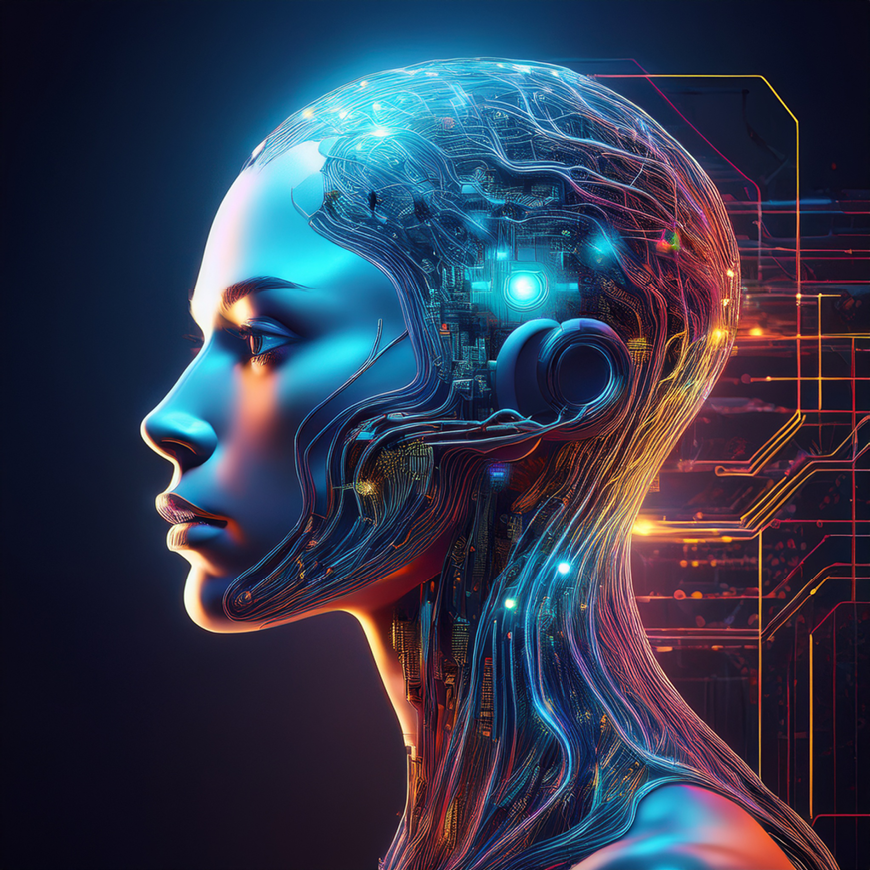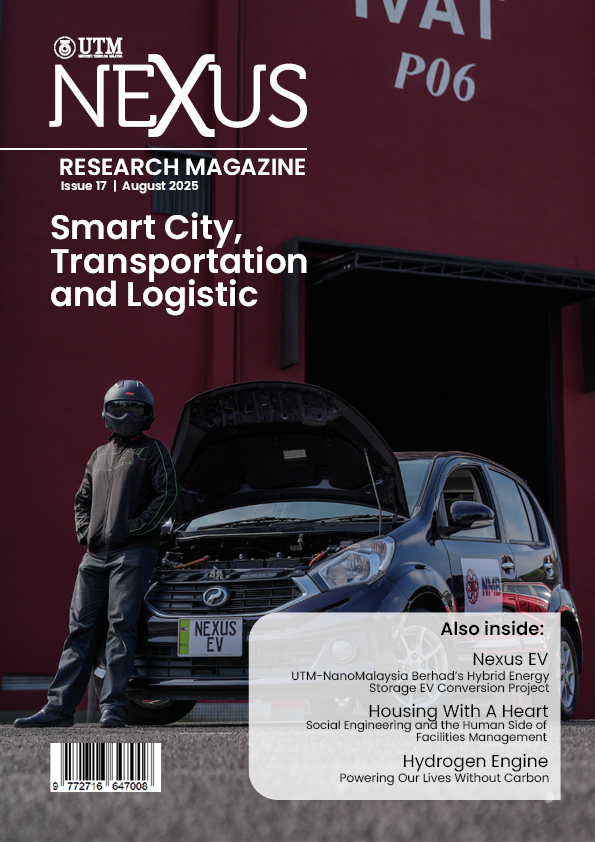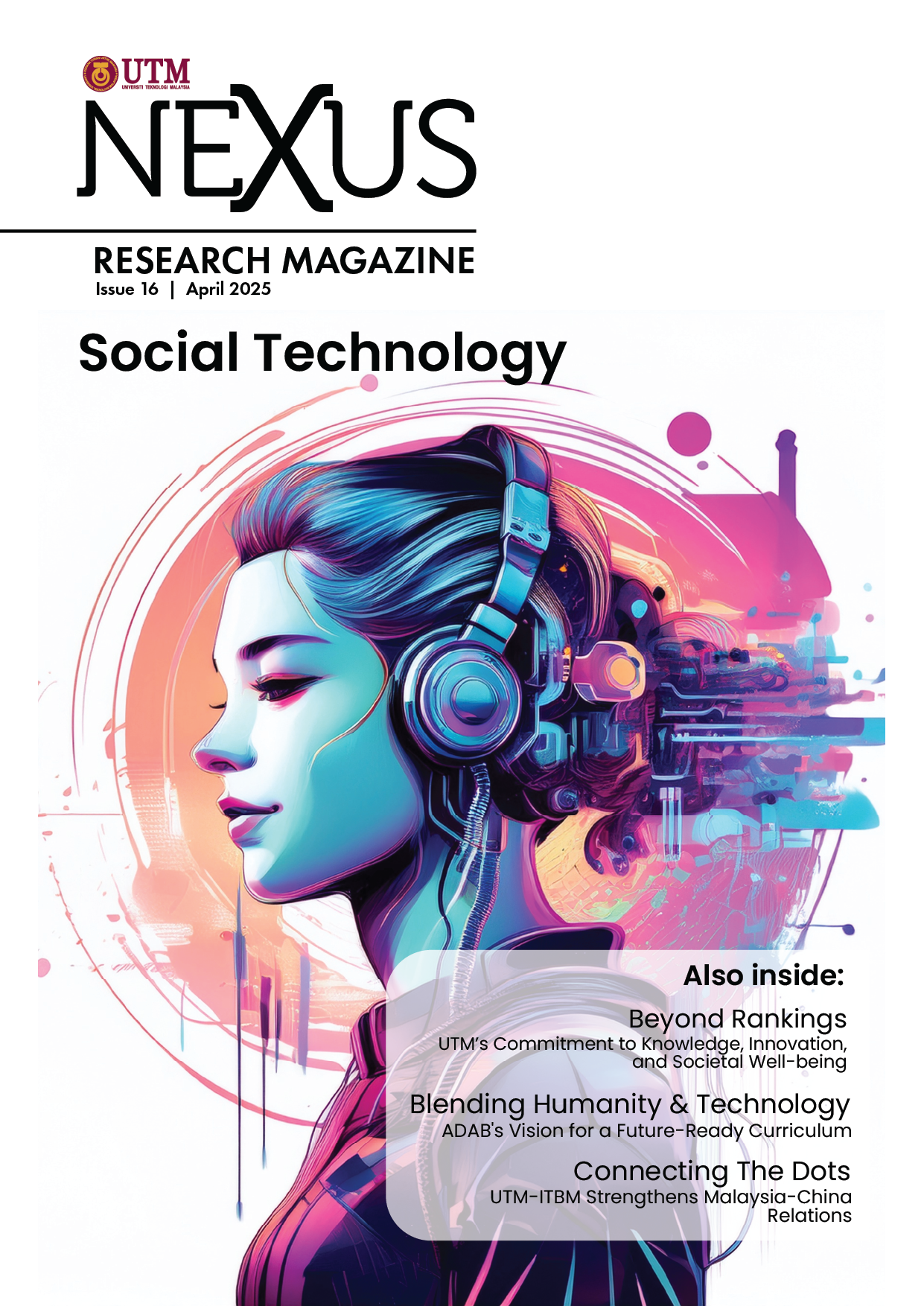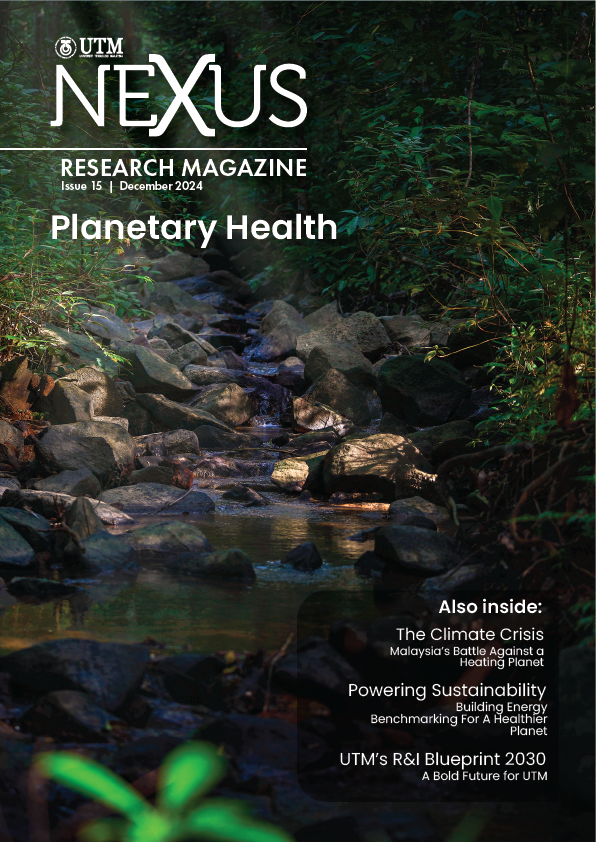
Blending Humanity & Technology
ADAB’s Vision for a Future-Ready Curriculum
by Dr. Abdulmumini Inda
Edited by Arif Harun
As technology continues to reshape the world, higher education stands at a critical crossroads. On one side lies the timeless values that define our humanity; on the other, the powerful tools of innovation that promise progress at an unprecedented scale. How do we prepare the next generation to thrive in a world dominated by artificial intelligence, automation, and digital ecosystems, without losing the essence of what makes us human? At the heart of this challenge lies a bold idea: integrating ADAB—a framework rooted in character development, ethics, and holistic growth—into the curriculum of tomorrow.
Technology has revolutionised education, opening new frontiers for learning and collaboration. Virtual reality simulations offer medical students hands-on training without risk; AI-driven platforms personalise learning journeys, adapting to each student’s pace and needs. Global connectivity enables young minds to co-create solutions across continents, building empathy and teamwork. Yet, alongside these promises arise profound concerns. Over-reliance on technology risks eroding interpersonal skills, critical thinking, and moral reasoning. As automation accelerates, there is a real fear that education may become transactional, sidelining the mentorship and human connection that have long been its soul. The future of education must find a balance. And for that, we turn to ADAB.
Derived from the Arabic concepts of “etiquette” and “moral conduct,” ADAB outlines four pillars essential for holistic development: adaptability, thriving amidst change and continuous learning; discipline, fostering perseverance, accountability, and self-regulation; awareness, cultivating empathy, ethical reasoning, and global consciousness; and balance, harmonizing intellectual, emotional, physical, and spiritual well-being. By embedding these principles into curricula, higher education institutions can nurture graduates who are not only technically adept but also emotionally intelligent, ethically grounded, and socially responsible.
A future-ready curriculum infused with ADAB would harness AI for personalised growth by tailoring learning paths to individual needs, while embedding reflection, creativity, and ethical inquiry at its core. It would elevate ethics and emotional intelligence through courses and workshops on AI ethics, mindfulness, and leadership, ensuring that graduates lead with empathy and integrity. It would champion interdisciplinary collaboration by merging engineering, philosophy, art, and design to solve complex challenges, nurturing well-rounded thinkers. It would foster global citizenship by using digital collaborations across borders to inspire cultural understanding and a shared sense of responsibility. Such a curriculum not only prepares students for evolving careers but also equips them to address society’s grand challenges—from climate change to social justice.
At Universiti Teknologi Malaysia (UTM), the future-oriented curriculum is envisioned through a structured ADAB-based framework. At its core, ADAB serves as the anchor connecting five essential graduate attributes: scholars, social intelligence, innovative solutions, enterprising skills, and constructive citizenship. This star-shaped framework ensures that while students gain technical excellence, they are simultaneously moulded to become socially aware, innovative, entrepreneurial, and responsible citizens. It highlights UTM’s commitment to producing holistic graduates ready to thrive in an increasingly complex world.
Complementing this vision, UTM has developed the Undergraduate Future-Oriented Curriculum Framework that emphasises flexibility and industry-driven education. Structured across four developmental stages—from fundamental knowledge to experiential expertise—the curriculum integrates seven key principles: fluid and organic curriculum design, humanistic and well-being approaches, the teaching-research nexus, emerging technologies, industry-community-academia collaboration, HyFlex learning environments, and diversity, inclusion, and personalised learning. Through these principles, UTM aims to cultivate lifelong learners, premium employees, and technopreneurs who are grounded in ADAB and capable of addressing future global challenges.
In strengthening the integration of ethics and holistic character into student life, UTM has also launched a dedicated “Modul ADAB dan Constructive Citizen” initiative. This pioneering effort, unveiled in September 2024 during the new student pledge ceremony, represents a strategic Key High Impact Result (KHIR) under the enVision UTM 2025 Plan. The module, developed collaboratively by a team of 37 university leaders and scholars, covers seven essential aspects of adab: respect towards God, oneself, parents, lecturers, peers, knowledge, and the environment. It aims to cultivate a harmonious campus culture where respectful interaction, ethical professionalism, and social grace define the UTM experience. As the first university in Malaysia to implement such a structured module, UTM once again underscores its leadership in future-proofing education through both technological empowerment and moral excellence.
Imagine a generation of graduates who command the tools of the digital age without losing sight of compassion, purpose, and ethical leadership. Picture classrooms where AI is a partner in nurturing human potential, not a substitute for it. Envision a future where education is not just about skills but about character, connection, and contribution. By embracing ADAB, higher education can rise to meet this defining moment. We can blend humanity and technology—not in competition, but in harmony—to shape a future that uplifts individuals, strengthens communities, and honours the shared journey of humanity. The choice is ours. The time is now
Co-authors:
Prof. Ts. Dr. Zaidatun Tasir
Assoc. Prof. Dr. Sanitah Mohd Yusof
Assoc. Prof. Dr. Ahmad Johari Sihes
Sabo Jamilu Sa’idu
Aliyu Alhaji Rabiu
Abdullahi Yusuf Usman
Amina Aminu Ismail





